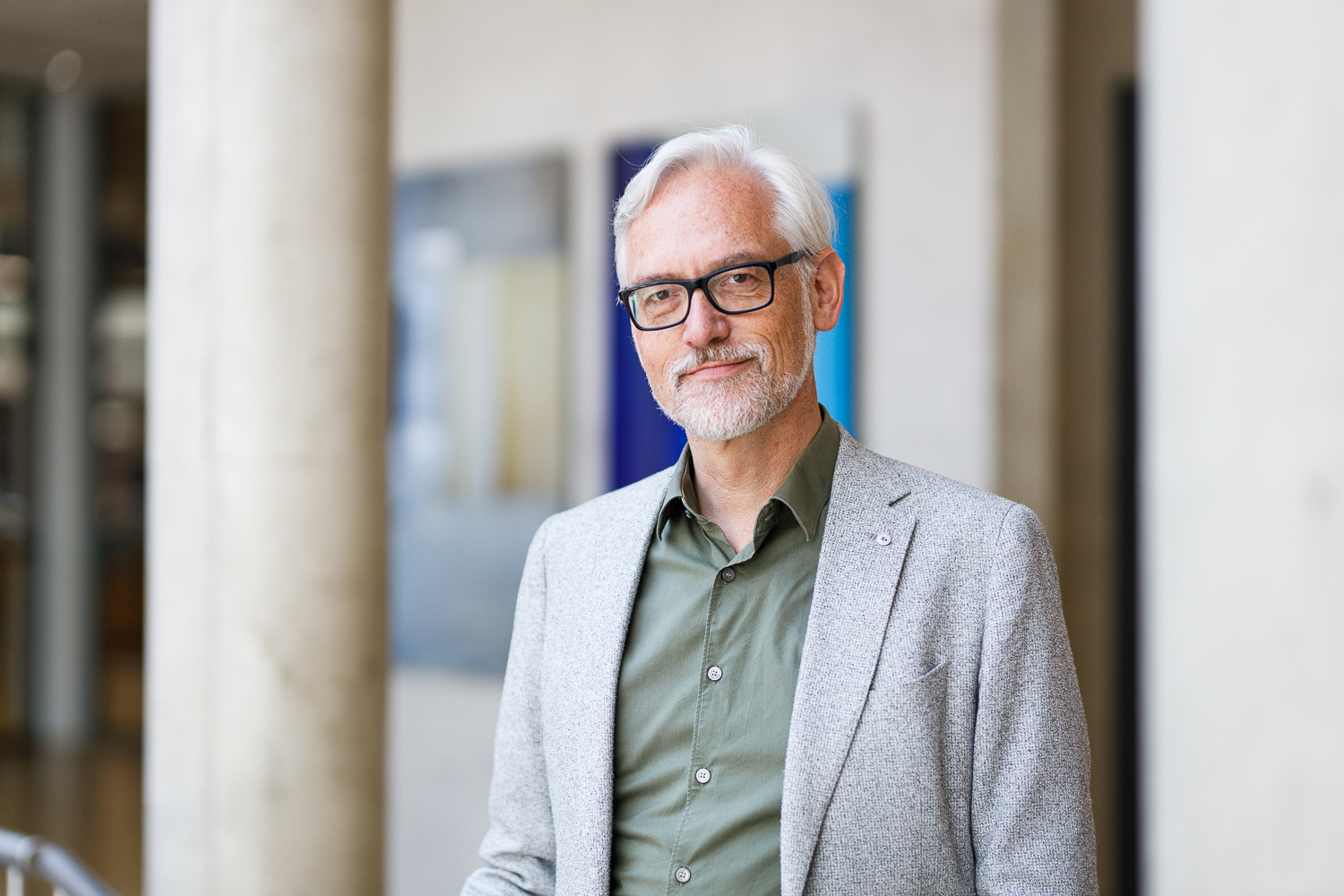Equity in higher education unravelled
12 September 2024
How aware are we of the real impact of policies and technological developments on equity within higher education?

Without quantitative insights, equity remains an empty promise
How aware are we of the real impact of policies and technological developments on equity within higher education? Learning Technology & Analytics Professor Theo Bakker’s call sounds like a warning bell: ’‘No Fairness Without Awareness.’’ During his inaugural speech on 21 November, he argues for more awareness with a clear message: ‘’Without quantitative insights, equity remains an empty promise.’’
Equity of opportunity: a deep-rooted problem
Within higher education, there is often talk of equity. Especially in response to new government measures, such as reintroducing the extended study penalty or concerning the rise of technologies such as AI. However, Bakker believes there is a significant lack of concrete data to understand how and for whom these changes may be detrimental. ‘’We talk about fairness but often don’t have a clear picture of which students are disadvantaged,’’ he explains.
Many educational decisions are based on gut feelings and qualitative research, while there is a severe lack of quantitative methods that can accurately measure equity. ‘’Without this data, we remain guessing and cannot take targeted actions to combat inequality,’’ he argues.
The use of sensitive data
The current tendency to stop collecting sensitive data, such as gender or age, to prevent discrimination is a fallacy, according to Bakker. These data are crucial for exposing inequalities in education. ‘’If we do not include this information, discrimination does not disappear; we just make it harder to recognise and address it,’’ he warns.
Omitting sensitive data does not make discrimination disappear
The structure of education still favours certain groups, such as the white girl with a high Dutch prior education. Researchers can gain insight into where and how inequality occurs by including sensitive characteristics in datasets and developing targeted interventions.
Technology as a tool for equity
An essential aspect of Bakkers’ research is the role of technology in promoting equality of opportunity. By using machine learning, it is possible to investigate equality of opportunity not only qualitatively but also quantitatively. Bakker: ‘’We can use these technologies to analyse whether there are differences in the opportunities for various groups of students, for example, in obtaining their degrees.’’
If disproportionate differences are revealed, this may indicate a bias in the data, which could be a form of (unconscious) discrimination. Institutions can adjust their teaching and guidance through these insights to become more equitable for all students.
The road to equal opportunities
According to Bakker, learning analytics offers a valuable way to improve teaching and student support. ’‘We can see per programme and group of students where education works well and falls short in equity,’’ he explains. These analyses help institutions identify which groups of students need extra support and where bottlenecks arise in their study careers.
Learning analytics help institutions identify which groups of students need additional support for true equity of opportunity.
He hopes that educational institutions will use the results of this kind of analysis to improve equity actively. He aims to make this approach widely available so that other institutions can adopt the method and work systematically to reduce opportunity inequality.
The future of Learning Technology & Analytics
The future of the brand-new Learning Technology & Analytics research group has its challenges. The rise of AI offers opportunities but also brings complex issues, especially concerning the new European AI Act. This legislation states that algorithms should not discriminate in education, giving educational institutions new responsibilities.
Bakker wants to develop his research methods further and test them in different educational institutions to see if the results are consistent. He also wants to analyse which subjects or placements might contribute to inequality and how these can be addressed.
A measure of educational quality
Finally, Bakker’s greatest wish is for equity to become a formal indicator within the quality assurance of courses and subjects. ’‘When it becomes a structural part of formal procedures, it will no longer depend on individual benevolence or chance,’’ he says.
By becoming aware of this inequality, we can start to solve it
With his inaugural speech Bakker hopes to convince his audience of the crucial importance of equity in higher education. ’‘It is a broad and essential issue that affects many students. But by becoming aware of this inequality, we can start solving it. No Fairness Without Awareness!’’
Signing up for the inaugural speech
On 21 November, Theo Bakker will present the research themes and ambitions of the research group Learning Technology & Analytics. The research group is part of the Faculty of IT & Design and the Centre of Expertise Global & Inclusive Learning within The Hague University of Applied Science.